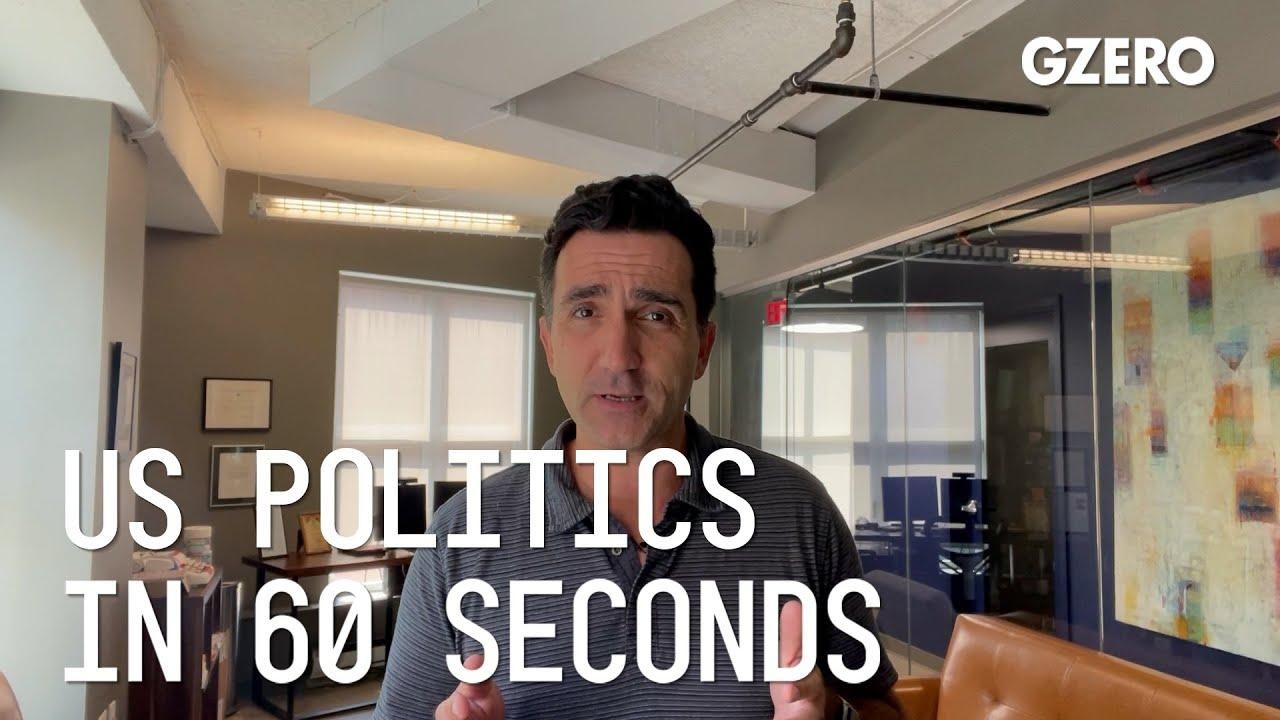US Politics In 60 Seconds
Pelosi Taiwan visit reflects extremely strong US Congress support

Pelosi Taiwan Visit Reflects Extremely Strong US Congress Support | US Politics :60 | GZERO Media

Jon Lieber, head of Eurasia Group's coverage of political and policy developments in Washington, DC, shares his analysis on US politics:
What are the lasting implications of Nancy Pelosi's visit to Taiwan?
House Speaker this week, Nancy Pelosi, became the highest ranking US government official to visit the island of Taiwan since the 1990s, setting off an enormous controversy within mainland China that prompted them to fire missiles into Taiwanese waters and directly threaten the United States.
The Biden administration reportedly was concerned about the trip, but nonetheless provided Pelosi with the logistical support that the House Speaker asked for in order to get there.
Pelosi's trip served no obvious purpose other than to show the island the extremely strong level of support for them in Congress, so strong, in fact, that several senior members of Congress are considering a new Taiwan Policy Act that would upend the status quo in US-Taiwan relations and potentially lead to even more blowback from China.
The Biden administration has been mostly silent about the visit this week and has been totally silent about the Chinese response out of fear of escalating a tense situation. If China stops its military exercises in the next few days, that can be the last we hear about this incident. But it won't be the last visit to Taiwan, and it won't be the last time tensions flare up in the Strait. Starting next year, you may have more members of Congress trying to travel there to show support for the island, which could prompt an even stronger reaction from the Chinese to deter future visits.
Both parties in the United States are growing increasingly hawkish on China, hoping to deter an invasion of Taiwan. This will be a flashpoint that could endanger cooperation on trade, increase the already intense pressure the US is putting on semiconductor companies to relocate to the US and get out of China, and contribute to the major bad vibes between the countries.
Pelosi's trip made a lot of sense from the domestic angle. Once China criticized it, she really couldn't back down. But in the long run, it will probably be remembered as yet another flashpoint in a rapidly deteriorating relationship.
100 million: The number of people expected to watch the Super Bowl halftime performance with Bad Bunny, the Puerto Rican superstar and newly minted Album of the Year winner at the Grammys.
Think you know what's going on around the world? Here's your chance to prove it.
An imminent US airstrike on iran is not only possible, it's probable.
Americans are moving less — and renting more. Cooling migration and rising vacancy rates, especially across the Sunbelt, have flattened rent growth and given renters new leverage. For many lower-income households, that relief is beginning to show up in discretionary spending. Explore what's changing in US housing by subscribing to Bank of America Institute.